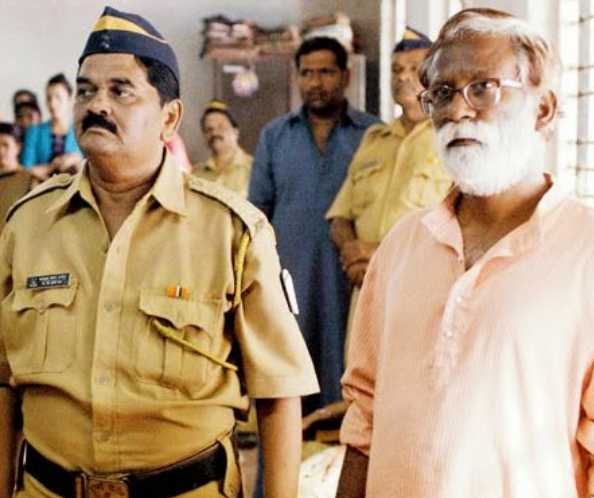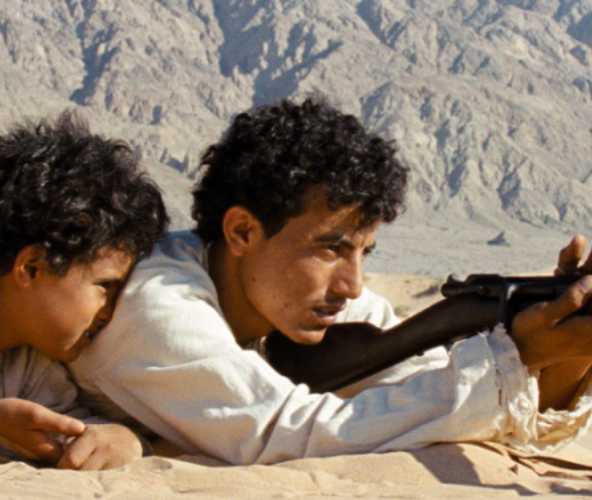Fuse Film Review: This Year’s Buenos Aires Festival of Independent Films — Unexpected Riches
I’ve served on several dozen film juries about the globe in the last three decades. I can’t recall ever having a choice of so many splendid films from which to award a grand prize.

A scene from “Court,” the winner of Best Picture at the 2015 Buenos Aires Festival of Independent Films.
By Gerald Peary
It sounds like a dream assignment: to watch all the films in an International Competition and, for a jury award, pick the best of the lot. And yet I was wary last week at the 17th Buenos Aires Festival of Independent Films (BAFICI). I was faced with 18 little-known movies from around the world, by directors of also little fame. How good could they be? 18 undistinguished films is a torture, 36 hours of suffering in the dark. How much better to be in Argentina eating grilled meat or watching expert tangoing!
The fact is that the best pictures normally get channeled to Cannes, Venice, Locarno, Rotterdam, and Toronto, the most prestigious world festivals. Ambitious producers who believe they have a film worthy of the above won’t offer them to slightly lesser festivals: Rome, London, Edinburgh, Moscow. Consider the Berlin International Film Festival in February, which is just a step below, and yet that makes all the difference. The Official Competition section at Berlin proves, every year I’ve attended, to be a disappointing grab bag of middlebrow cinema, movies to be avoided. What is really excellent has been shown already at Rotterdam in January, or is being held back for Cannes in May and/or Venice in September.
That’s a long way to say I was wonderfully surprised by the International Competition at BAFICI 2015. Delighted. Elated. I’ve served on several dozen film juries about the globe in the last three decades. I can’t recall ever having a choice of so many splendid films from which to award a grand prize. My three-member jury representing the International Critics Association (FIPRESCI) was allowed to give only one citation, and that for Best Film. We voted unanimously for Court, from India. But half-a-dozen other works were so good that I wish that my jury (I from the USA, the others from Argentina and Uruguay) could have rewarded them also.
Court, which has American distribution from Zeitgeist and will open in the US in December, is an astonishing first work by a 27-year-old Indian filmmaker, Chaitanya Tamhane. It’s a faux documentary set in a lowly court in Mumbai, and feels like a Frederick Wiseman probe of the inner workings of an institution. As with Wiseman’s more socially conscious non-fictions, it’s not a pretty picture. The smug, upper-caste judge makes his courtroom his fiefdom, patronizes his lower-caste litigants. He can be a total prude, forcing a poor woman to come back to court another day because her arms are bare. The judge is particularly irritated when the defendants have a leftist political bent. The main story of Court centers around the trial of a “Dalit,” an untouchable. He’s has been arrested after an appearance in a public park, where he sang his stirring Brecht-like ballads. Director Tamhane’s roast of justice, byzantine India style, is never preachy or didactic. Court is often quite funny, in an almost Buñuelian way.
Another amazing film is Theeb, a narrative from Jordan set in the Hejaz desert during World War 2, where the battlefield had spread to the Middle East. What starts in expected fashion in the neorealist mold prevalent in Arab cinema — an indigent boy, his older brother, and their camels — turns into an unexpected classic western. There are virtuoso gun battles amidst the jagged terrains which recall the 1950s shoot-‘em-ups of Anthony Mann and a violent cynical ending which tells me that filmmaker Naji Abu Nawar, English born though living in Amman, Jordan, is emulating Sam Peckinpah.
Jonas Trueba’s Romantic Exiles, a world premiere from Spain at BAFICI, is a lovely romantic comedy. Three young Spanish men set off from Madrid on an automobile trip to Paris and back. Along the way, each meets a young lady with whom he is, or was, romantically involved. Will the romance be continued, or stopped? So much like in a film from the late great French filmmaker, Eric Rohmer, these charming, attractive people talk and talk. And what arresting conversation! Who can’t adore a movie which ends with the guys bonding in a lake and the women, standing above, discussing the wisdom of American lesbian cartoonist Alison Bechdel?
There’s Snow White and the Seven Dwarfs, and now a sensational Argentine documentary, La Mujer De Los Perros, in which a mute woman lives in a ruined building in the countryside with her eight loyal dogs. The filmmakers follow this disheveled woman through four seasons of her life as she scavenges for food, runs away when people are about, and somehow gets by in her poverty, and somehow keeps her canine mongrels fed. It’s fascinating to see how she remains their master without ever talking to them and rarely petting them. But when she gets up for a walk, they excitedly follow. When she sleeps, they all squeeze in about her. Is the woman a bit crazy or just living the authentic misanthrope life? The filmmakers, Laura Citarella and Verónica Llinás, make no judgments in this commendably non-exploitative work.

A scene from “Theeb”– its virtuoso gun battles amidst jagged terrains which recall the 1950s shoot-‘em-ups of Anthony Mann.
Sometimes you have to go all the way to Argentina to discover terrific movies from the USA. I missed the documentary, Glen Campbell, I’ll Be Me, in its brief Boston run, partly because Campbell always struck me as the most mainstream of country singers. Well, that’s partly true, but the film showed up my ignorance about his virtuoso guitar playing (he backed up the Beach Boys on some of their greatest work); and I realized I actually love some of his most popular songs, like “Wichita Lineman.” And, yes, what a voice! But this new film is only partly about his music, far more about Campbell’s health issues. It’s a graphic, courageous, truly powerful look at this proud celebrity’s descent into dementia because of Alzheimer’s disease. We see it happen on camera, sad step by step, as we follow Campbell on his shaky, daunting Farewell Tour.
Finally, in Buenos Aires I saw a fine essay-documentary by a Cambridge-based filmmaker, Soon Mi-Yoo, with whose work I was totally unfamiliar. Songs from the North, which appropriately won a Best First Feature prize at Locarno, takes Soo away from Massachusetts to South Korea to interview her retired lawyer father. They focus on the moment in the 1950s when his leftist friends marched off to live in North Korea and tried to get him to join them. He’s certain they’re all long dead, the brutal fate of romantic idealists who went to join the Communist Revolution.
The bulk of Songs from the North is Soon’s touristic visit to North Korea, snippets of the moments when she dared to film are mixed in with lunatic scenes from North Korean cinema. It’s all eye-popping kitsch histrionics in worship of Kim II-sung and his murderous family. Is there hope for North Korea? It may be with the children who, looking into Soon’s video camera, seem surprisingly healthy and “normal,” giggly and curious like kids around the world meeting an interesting stranger.
Gerald Peary is a professor at Suffolk University, Boston, curator of the Boston University Cinematheque, and the general editor of the “Conversations with Filmmakers” series from the University Press of Mississippi. A critic for the late Boston Phoenix, he is the author of 9 books on cinema, writer-director of the documentary For the Love of Movies: the Story of American Film Criticism, and a featured actor in the 2013 independent narrative Computer Chess.
